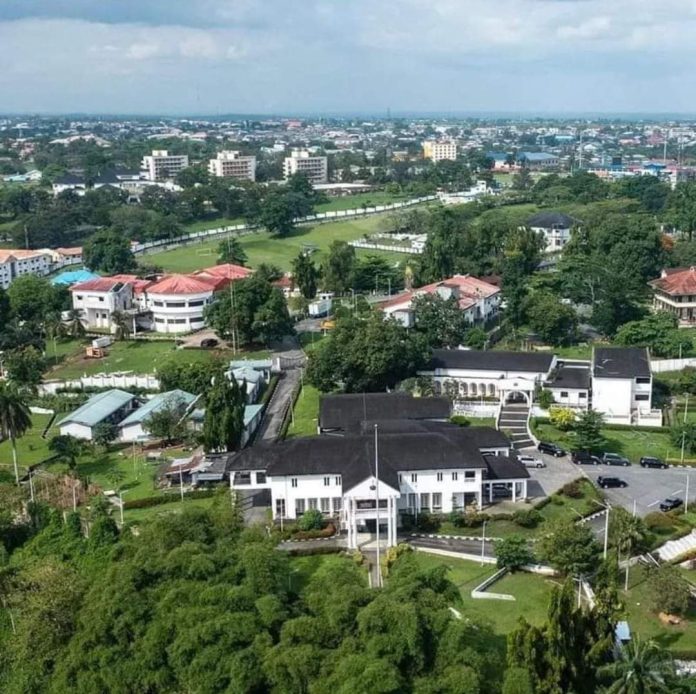©Efikpedia Esoterica, 2024
Traditionally and constitutionally, an Efik native is defined by origin and birth, as any person who genuinely and/or rightly traces his/her ancestry (paternity and/or maternity) to either Atai or Efiom Ekpo dynasty (Hogan et al, 2000;2010; 2023;2024). Note that GENUINELY and RIGHTLY are deliberately used to suggest that the process of tracing one’s origin as Efik must be in accordance with known truth, fact or reality; and must lexically, structurally, genealogically follow Efik approved proper naming pattern to at least 7th generations or descendancy line from affected tracer (Hogan, 2005). This act or process is specifically called UTIÑ EMANA, not UTIÑ IDEM or UTIÑ NTAK, as inferred under).
Accordingly, that history recorded the Efiom Ekpo’s bloodline as being partly traced to Uruan, patrilineally, specifically due to the “illicit royal admixture” that led to “a glorious outcome of a natural integration”, does not ethically negate the fact that the Efiom Ekpo’s are lawfully Efik natives by origin and ancestry as defined above. Of course, they are maternally Ekei Atai descendants and indeed, the most known, most influential and most accomplished “Efik royal dynasty” in Old Calabar.
Besides, that Efik is historically a globally reputed “diasporan nation” that triumphantly sojourned through many international and local places; particularly from its “original-oriental- Mesopotamian-Egypt-Sudan region in circa 10th pro 11th century A.D, to arrive now Nigeria in circa 13th A.D; thro sub-Saharan African-caravan trade routes etc, affirms why Efik has undisputed experiential feats… as Nigeria’s oriental trailblazer from the ancients. In effect, Nigeria’s story is historically incomplete without the mention of the contributions made in the Southern region by ancient Efik integration, intermarriage, political, inter-ethnic, linguistics or religious accomplishments. Recall that Efik was the first political seat of power for Nigeria’s Southern Protectorate and Eastern Region. Also, that, prior to then, Efik was the country’s cradle for Western Civilization, education, International trade, Christianity and tourism from the 13th to 20th Centuries.
Thus, it is historically not a taboo to delight amongst other things (e.g. Efik rejection of the Igbo’s long juju and Atakpo Uruan Ibibio deities in favour of their Usan Abasi, an issue (s) that respectively ended Efik sojourn in both places), that Efiom Ekpo dynasty (as best known) is rightfully Efik’s most accomplished gains that favoured or balanced Efik maternity against paternity at the apex of defining Efik natives by origin or ancestry.
Bear in mind that despite being a patriarchy, the Efik kingdom is cosmically, mythologically and transcendentally girded with an ancient spiritism practice that recognizes gender equity and sensitivity in heritage issues. This reality is asserted by the fact that Efik men and women have equal rights of access, worship and appeasement of Ndem, seen as the highest in the realms of ancient Efik polytheism, outside God.
Further, except for ignorance, cynicism or revisionism sake, there is actually no dispute that IBOM, despite being copied and shared by the Ibibios and equally known to the Igbos, IS ORIGINALLY AN EFIK ORIENTAL WORD, said by some scholars and historians (Effiong, 2010; Aye; 2005; Akak, 1981) to be the corruption of Hebrew’s Gibbom; as seen for instance, in the Efik’s Abasi Ibom and Inyang Ibom.
Hogan (2023) defined IBOM as an Efik cosmo-mythical oriental word for invincible, ubiquity, limitless and/or ad infinitum extra-mundane being or creature that transcends humanity in creation, origin and age. E.g. God (Abasi Ibom Enyọñ/Ata or Akwa Abasi Ibom); Inyañ Ibom (Sea/Ocean); and the rarely used Enyọñ Ibom (the sky)/Isọñ/Ekondo Ibom (the Earth/cosmic plain/universe). In effect, Ibom is extremely the Efik’s equivalent of the Hebrew’s use of such adjectives like “Omnipresent, Omnipotent and Omniscient” to describe God and/or everything by which He- as A TRINITY- manifests His wonders as the Creator of the universe and humanity (Hogan, 2023).
Note that Ibom as one of the very first places that Efik ancestors settled in c.13th century when they first arrived now called Nigeria from “the orient” (Aye, 2005), the other place being Otutu in ancient Igbo country… is justified by the equal claim by some historians that the Igbos partly point their origins to Hebrews/orient (Onwuka, 2000). Also note that, the mere fact that Efik ancestors entered Nigeria from the orient with their founding monarch as Ibom Enọ/Enọ Ibom … affirms that the Ibom in Efik history predates the Ibom claimed by the Ibibio. It critically affirms that Ibibio copied it from ancient Efik, during Efik sojourn in Uruan. Mainly through “causative -reciprocal learning and modelling effect of acculturation, integration or intermarriage outcomes (Hogan, 2013 &2023; Bandura, 1972).
Therefore, it is apparent from the above premises that it is CRITICALLY UNFAIR, AN UNNECESSARY NOISE, FAULTY REVISIONISM or BASELESS CLAIM to paradoxically admit claim that Akwa Ibom State, created from former CRS …is the origin of IBOM/BIGGEST IBOM because the “Akwa” that qualifies its copied “Ibom”, is another shared Efik word translated to “great” (See Efik history for Akwa Akpa and Akwa Duke Ephrom that equally predate the foundation of AKS as further assertions).
Finally, it is advised that every social media critic/writer that paradoxically lacks sufficient intellectualism, historicity, sagacity or audacity to review, critique or debate Efik history and heritage… should desist from anti-Efik posts, sentiments or baseless claims on/offline.










